Graduate Studies
Questions?
philgradoffice@uwo.ca
Graduate Chair
Angela Mendelovici
Graduate Program Coordinator
Meghan Magowan
Graduate Development & Placement Coordinator
Anthony Skelton
philplacementofficer@uwo.ca
Alumni Updates
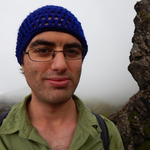 Reuven Brandt, PhD 2015, MA 2010
Reuven Brandt, PhD 2015, MA 2010
Assistant Professor, UC San Diego
Reuven Brandt completed his PhD in 2015 under the supervision of Carolyn McLeod. His thesis examines the obligations acquired by gamete donors towards their biological offspring. Following his PhD Reuven was a post-doc at Lancaster University and UC San Diego. Reuven is currently an assistant professor at UC San Diego. His research focuses on applied ethics, with a particular focus on reproductive ethics and procreative responsibility. More information is available at his website: www.reuvenbrandt.com.
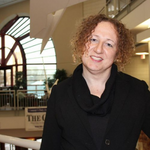
Stephanie Kapusta, PhD 2015, MA 2011
Tenure-track Assistant Professor, Dalhousie University
I completed my PhD in philosophy at the University of Western Ontario in 2015, under the joint supervision of Profs. Carolyn McLeod (Philosophy) and Richard Vernon (Political Science). As of July 2019, I hold a probationary tenure-track appointment as Assistant Professor in the philosophy department at Dalhousie University in Nova Scotia, cross-appointed with Gender and Women’s Studies, and the Law, Justice, and Society Program at Dalhousie.
My research interests lie in the areas of feminist philosophy (with an emphasis on trans* studies), & in social and political philosophy, focussing, in particular, on the ontology of gender, ideology critique, & transgender rights.
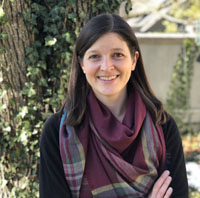
Melissa Jacquart, PhD 2016, MA 2012
Tenure-track Assistant Professor, University of Cincinnati
Melissa Jacquart is an Assistant Professor in the Philosophy Department at the University of Cincinnati and Associate Director for the University of Cincinnati Center for Public Engagement with Science. Her research focuses on epistemological issues in the philosophy of science, specifically on the use of models and computer simulations in astrophysics. Her research also examines the role philosophy can play in general public engagement with science, and in science education in particular. She also works on philosophy of education, and is particularly interested in developing effective teaching methodologies for philosophy. Prior to Cincinnati, she was a postdoctoral researcher working in the Philosophy Department at the University of Pennsylvania and the Carnegie Observatories.
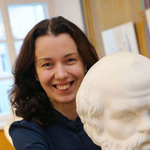
Riin Sirkel, PhD 2010
Assistant Professor TT, University of Vermont
Riin Sirkel's areas of interest are in Ancient Philosophy and metaphysics, especially Aristotelian metaphysics and epistemology. She also has a research interest in Medieval Philosophy and the Philosophy of the Ancient Greek Commentators (200-600 AD), which represents the missing link between Ancient and Medieval Philosophy. Riin Sirkel teaches Introduction to Philosophy and History of Ancient Philosophy.
 Shannon Dea, PhD 2008
Shannon Dea, PhD 2008
Associate Professor with Tenure, University of Waterloo
My academic history involves tentacles, distractions and unusual delays. I did my UW undergraduate study in Philosophy and Russian as a mature student looking to wrestle with big ideas rather than the workforce. However, the (non-academic) workforce drew me back for nine years, during which time I was a waiter, a school photographer, a yoga teacher and a physiotherapy aide. When I returned to school to do my MA at Queen’s, I thought I’d end up working on social philosophy, especially on issues involving prisons (because of volunteer work I’d been doing with women prisoners, ex-offenders and i.v. drug users), but instead I became interested in philosophical hermeneutics, writing my thesis on Hans-Georg Gadamer’s characterization of how science works.
This inspired me to go to Western to do PhD research on philosophy of science in the continental tradition. Again though, I got distracted, this time by the history of philosophy. I ended up specializing in early modern philosophy, and writing a seemingly improbable dissertation on the 19th-20th century American pragmatist Charles Sanders Peirce and the 17th century continental rationalist, Baruch Spinoza.
Since then, I’ve remained interested in – and continue to work on – the ways in which philosophers understand and are influenced by each other, and by other thinkers and movements. However, I also continue to be distracted by other stuff. Most recently, developing my Philosophy 202 “Gender Issues” course has involved me in really interesting new research on the metaphysics of sex – specifically the question of how many human sexes there actually are (and related meta-questions about that question). And, my undergraduate teaching and my work as departmental undergraduate chair led me into research on the scholarship of teaching and learning – trying to sort out the best way to teach Philosophy. I used to worry about all of the tentacles in my research, but nowadays, I see more and more connections between the often disparate things I’m interested in. I encourage my students too to follow their many curiosities. Out of diversity, interesting shapes emerge.
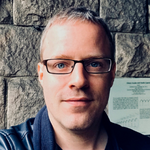 Jason Marsh, PhD 2012
Jason Marsh, PhD 2012
Assistant Professor TT, St Olafs College
I am Jason Marsh. I am currently Assistant Professor of Philosophy at St. Olaf College (about 40 miles south of Minneapolis, USA). You can visit my departmental page here. My research is in ethics (esp. procreative ethics, a sub field of bioethics), science and ethics (eps. intersection between psychology and value theory), and philosophy of religion (esp. science and religion, the problem of evil, and divine hiddenness). I have had papers accepted or published in such journals as Bioethics, The Monist, and Philosophy and Phenomenological Research.
 Patrick Clipsham, PhD 2012
Patrick Clipsham, PhD 2012
Assistant Professor TT, Winona State University
I am an Assistant Professor at Winona State University, where I teach a number of philosophy courses, including Critical Thinking, Biomedical Ethics, Environmental Ethics, Business Ethics, and Moral Theory. I received an Honours BA (2007) in Philosophy from Wilfrid Laurier University, an MA (2008) in Philosophy from the University of Waterloo, and a PhD (2012) from the University of Western Ontario. I also spent some of 2011 as a visiting student at the University of Michigan.
Most of my research revolves around a family of questions regarding the methodology of ethics, including normative ethics, metaethics, and applied ethics. In my dissertation, 'Does Empirical Moral Psychology Rest on a Mistake?' I looked at the methodological assumptions made by a number of metaethicists, and argued that there is good reason to reject a number of these assumptions. I concluded that a particular class of metaethical theories (theories about the nature of moral judgment) must be understood as having moral content. This implies that we must assess these theories as we would any other moral theory, by weighing their consequences against our moral intuitions and considered moral beliefs. Publications related to this project can be found in Philosophical Studies and Metaphilosophy.
Much of my current research focuses on issues that are related to the topic of my dissertation. I am currently working on several papers that look at how the distinction between normative ethics and metaethics has been used and misused by metaethicists in the Twentieth Century. Additionally, I'm interested in how we should go about selecting specific theories in normative ethics, and the types of evidence that can (and cannot) justify such selections. I think that the answers to these types of questions can have significant consequences for ambitious normative moral theories like contractualism.
I also have an interest in many other areas of moral philosophy, especially biomedical ethics. For example, I have done extensive research on the ethical and practical problems associated with conscientious refusals in the context of health care (my publications on this topic can be found in the International Journal of Applied Philosophy and the International Journal of Feminist Approaches to Bioethics). I have also recently started working on some topics related to animal ethics, specifically on the ethical problems surrounding the treatment of animals as commodities.
 Nic Fillion, PhD 2013
Nic Fillion, PhD 2013
Assistant Professor, Simon Fraiser University
I am assistant professor of philosophy at Simon Fraser University. I was previously postdoctoral fellow jointly appointed at the department of applied mathematics and at the department of statistics and actuarial sciences at the University of Western Ontario, London, Canada. I have a PhD in Philosophy, under the co-supervision of John L. Bell and Robert W. Batterman (now at U Pittsburgh). Robert M. Corless and I are currently putting the finishing touches to the book A Graduate Introduction to Numerical Method, From the Viewpoint of Backward Error Analysis, which has made the Notable Book 2013 list of the ACM Computing Reviews. My work focusses on the philosophy of mathematics, both pure and applied. I approach many of the problems of philosophy of mathematics as problems pertaining to philosophy of science, and in turns I like to think about the philosophy of science problems as problems pertaining primarily to general epistemology. This is the premise for most of my current work.
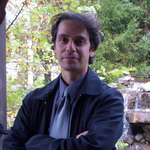 Michael Cuffaro, PhD 2013
Michael Cuffaro, PhD 2013
Post Doc at the Munich Center for Mathematical Philosophy at Ludwig Maximilian University in Munich, Germany
I am a postdoctoral fellow with the Munich Center for Mathematical Philosophy at Ludwig Maximilian University in Munich, Germany. My primary research interests lie at the intersection of the philosophy of physics and the philosophy of computer science, particularly in the philosophy of quantum computation and information. I am also interested in the general philosophy of science (especially scientific explanation), in the history of philosophy (especially Kant), in metaphysical and epistemological issues in jurisprudence, and in social and political philosophy (both traditional and computational approaches). You will find, on this site, links to my publications, a list of my recent and upcoming talks, a list of the courses I teach and have taught, and other miscellaneous information. I hope there is something among these to interest you.
I obtained my Ph.D. in philosophy, under the supervision of Professor Wayne C. Myrvold, from the University of Western Ontario (in London, Ontario, Canada) in 2013. I also hold a bachelor's degree in computer science and a master of arts degree in philosophy. Both of these were obtained at Concordia University (Montréal, Québec, Canada). Between 2000 and 2008 I was employed as a software developer (specialising in database and real-time systems programming): at Ericsson Canada until 2005, and then at Radialpoint until 2008.


